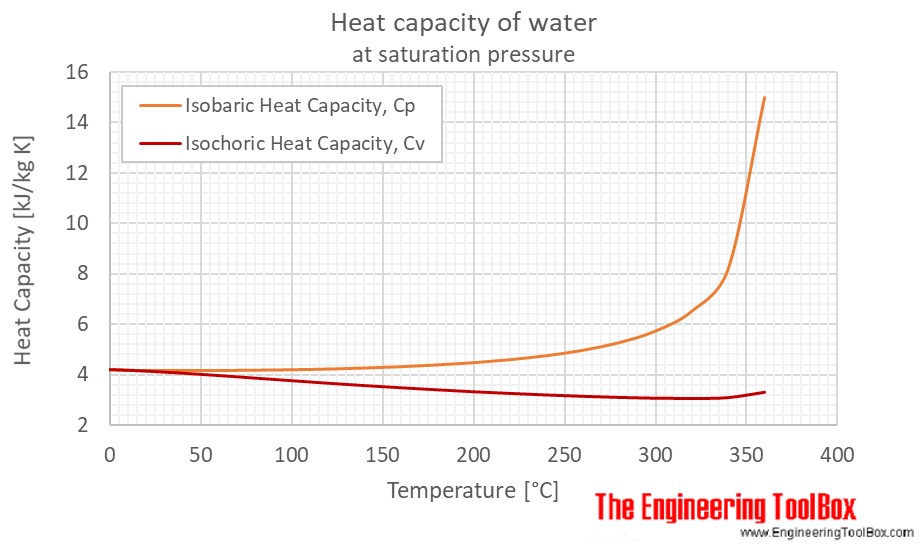Chemistry Notes On – Specific Heat Of Water – For W.B.C.S. Examination.
রসায়ন নোট – নির্দিষ্ট জলের তাপ – WBCS পরীক্ষা।
Heat is a form of energy, often called thermal energy. Energy can be transformed from one form to another (a blender transforms electrical energy into mechanical energy), but it cannot be created nor destroyed; rather, energy is conserved. In basic thermodynamics, the higher the temperature of a material, the more thermal energy it possesses. In addition, at a given temperature, the more of a given substance, the more total thermal energy the material will possess.Continue Reading Chemistry Notes On – Specific Heat Of Water – For W.B.C.S. Examination.
On an atomic level, absorbed heat causes the atoms of a solid to vibrate, much as if they were bonded to one another through springs. As the temperature is raised, the energy of the vibrations increases. In a metal, this is the only motion possible. In a liquid or gas, absorbed heat causes the atoms in the molecule to vibrate, and the molecule to both rotate and move from place to place. Because there are more “storage” possibilities for energy in liquids and gases, their heat capacities are larger than in metals.
What is Heat Capacity?
Heat capacity, Cp, is the amount of heat required to change the heat content of 1 mole of material by exactly 1°C.
What is Specific Heat?
Specific heat, Csp, is the amount of heat required to change the heat content of exactly 1 gram of a material by exactly 1°C.
Specific heat values can be determined in the following way: When two materials, each initially at a different temperature, are placed in contact with one another, heat always flows from the warmer material into the colder material until both the materials attain the same temperature. From the law of conservation of energy, the heat gained by the initially colder material must equal the heat lost by the initially warmer material.
We know that when heat energy is absorbed by a substance, its temperature increases. If the same quantity of heat is given to equal masses of different substances, it is observed that the rise in temperature for each substance is different. This is due to the fact that different substances have different heat capacities. So heat capacity of a substance is the quantity of the heat required to raise the temperature of the whole substance by one degree. If the mass of the substance is unity then the heat capacity is called Specific heat capacity or the specific heat.
Specific Heat Capacity Formula
Q = C m ∆t
Where Q = quantity of heat absorbed by a body
m = mass of the body
∆t = Rise in temperature
C = Specific heat capacity of a substance depends on the nature of the material of the substance.
S.I unit of specific heat is J kg-1 K-1.
Heat capacity Formula
Heat capacity = Specific heat x mass
Its S.I unit is J K-1.
Specific Heat of Water
For liquid at room temperature and pressure, the value of specific heat capacity (Cp) is approximately 4.2 J/g°C. This implies that it takes 4.2 joules of energy to raise 1 gram of water by 1 degree Celsius. This value for Cp is actually quite large. This (1 cal/g.deg) is the specific heat of the water as a liquid or specific heat capacity of liquid water.
One calorie= 4.184 joules; 1 joule= 1 kg(m)2(s)-2 = 0.239005736 calorie.
The specific heat capacity of water vapour at room temperature is also higher than most other materials. For water vapour at room temperature and pressure, the value of specific heat capacity (Cp) is approximately 1.9 J/g°C.
As with most liquids, the temperature of water increases as it absorbs heat and decreases as it releases heat. However, the temperature of liquid water falls & rises more slowly than most other liquids. We can say that water absorbs heat without an immediate rise in temperature. It also retains its temperature much longer than other substances.
We use this property of water in our body to maintain constant body temperature. If water had a lower Csp value, then there would a lot of cases of overheating and underheating.
For Guidance of WBCS (Exe.) Etc. Preliminary , Main Exam and Interview, Study Mat, Mock Test, Guided by WBCS Gr A Officers , Online and Classroom, Call 9674493673, or mail us at – mailus@wbcsmadeeasy.in
Visit our you tube channel WBCSMadeEasy™ You tube Channel
Please subscribe here to get all future updates on this post/page/category/website



 Toll Free 1800 572 9282
Toll Free 1800 572 9282  mailus@wbcsmadeeasy.in
mailus@wbcsmadeeasy.in


















































































































